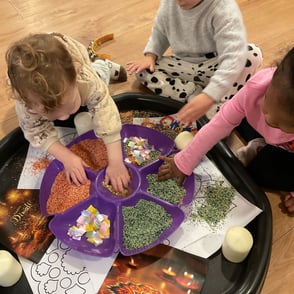There comes a time in every child’s life when they have to deal with the challenge of being away from their parents. For some, this separation can be harder than for others, making Parenting even more challenging than it should be. Leaving your precious child in someone else’s care is never easy, but it can be heartbreaking if your child reacts badly by throwing a tantrum.
While it is important to understand that separation anxiety is a perfectly normal part of a child’s development, there are certain things parents can do to ease this transition and build a sense of security for their baby and help them to grow up to be a more independent toddler. Here are five tips on how to deal with separation anxiety in babies:
Start Taking Baby Steps – Practising Being Apart
There are many ways you can prepare a child so that being apart from their parents comes as less of a shock. Games like hide-and-seek reinforce the notion that your parents will always return. Leaving the child for short periods of time with other family members that they know and trusts, such as grandparents, aunties or uncles, is also a good idea. The key here is for the child to learn that their parents will always return (and that it’s possible to trust other caregivers too). These brief separations will help you to get to a stage where you’ll be able to leave your child with a nanny or in a nursery without difficulties.
Create A Set Goodbye Routine
Kids thrive on routine so parents may benefit from creating a soothing ritual every time they go out. Perhaps giving the child a quick hug or kiss, waving to them until they are out of sight or using a fun catchphrase like ‘see you later alligator’ that’ll make the little ones smile.
Each child is different so find what works for yours and stick with it. Parents will also need to strike a balance between just sneaking out without preparing their child in any way and making an ordeal of the whole thing by dragging out your departure.
Maintain A Brave Face
Of course, being separated from your child, and in some instances seeing them in distress, is no easy feat for the parents either. But remember: you’re the adult in the situation so maintain a brave face and hold back the tears at least till you are out of the child’s sight. Seeing the person they look up to as their protector and point of stability visually upset will only send a message that something is wrong and heighten the child’s anxiety.
Check-In From Time To Time
No matter how much progress you’ve made, there is still going to be the odd bad day when your child doesn’t want you to leave. Perhaps they are feeling a little under the weather or aren’t yet comfortable with a new caregiver, whatever the case may remember it is OK to check-in. If it means giving the school a call or popping the new nanny a message to see how your baby is doing, it’ll give you peace of mind and lessen those pangs of guilt, so do it.
Make Reunion Time Fun
As much as it may feel like a necessary evil in life, being apart is difficult for both the parent and child. So why not reward yourselves for making it through the separation period? Having a simple reunion ritual such as a hug, high five or taking an extra five minutes to check-in with the child and see what they’ve been up to while you’ve been away are all great ways to reinforce the parent-child bond.
Of course, children having to be apart from their parents is an important part of them growing up, becoming independent and well-adjusted individuals but the process isn’t always easy. As a parent, you’ll probably have to use a little bit of trial and error until you find what works for your child. But whatever the case, knowing your child is in safe hands will certainly make life easier.
We hope this helped answer the question of how to deal with separation anxiety in babies! To help you find the childcare model that works for you, check out our curriculum for more information!

21-Jul-2020 11:53:42
Related Articles




Write a Comment